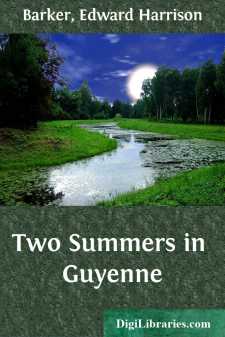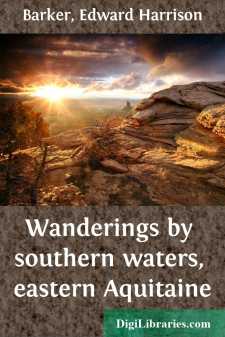Categories
- Antiques & Collectibles 13
- Architecture 36
- Art 48
- Bibles 22
- Biography & Autobiography 813
- Body, Mind & Spirit 142
- Business & Economics 28
- Children's Books 14
- Children's Fiction 11
- Computers 4
- Cooking 94
- Crafts & Hobbies 4
- Drama 346
- Education 46
- Family & Relationships 57
- Fiction 11829
- Games 19
- Gardening 17
- Health & Fitness 34
- History 1377
- House & Home 1
- Humor 147
- Juvenile Fiction 1873
- Juvenile Nonfiction 202
- Language Arts & Disciplines 88
- Law 16
- Literary Collections 686
- Literary Criticism 179
- Mathematics 13
- Medical 41
- Music 40
- Nature 179
- Non-Classifiable 1768
- Performing Arts 7
- Periodicals 1453
- Philosophy 64
- Photography 2
- Poetry 896
- Political Science 203
- Psychology 42
- Reference 154
- Religion 513
- Science 126
- Self-Help 84
- Social Science 81
- Sports & Recreation 34
- Study Aids 3
- Technology & Engineering 59
- Transportation 23
- Travel 463
- True Crime 29
Edward Harrison Barker
Edward Harrison Barker (1851–1919) was an English author and naturalist, known for his writings on nature and travel. He wrote extensively about rural life and landscapes, particularly in France, with his book "Wayfaring in France" (1890) being one of his notable works. His love for animals and the countryside is also evident in his book "Two Summers in Guyenne" (1894), where he describes his travels through the French province of Guyenne. Barker's works are praised for their detailed observations and vivid descriptions of nature and the rural environment.
Author's Books:
Sort by:
THE UPPER DORDOGNE. I had left the volcanic mountains of Auvergne and had passed through Mont-Dore and La Bourboule, following the course of the Dordogne that flowed through the valley with the bounding spirits of a young mountaineer descending for the first time towards the great plains where the large towns and cities lie with all their fancied wonders and untasted charm. But these towns and cities...
more...
THE VALLEY OF THE OUYSSE AND ROC-AMADOUR. From the Old-English town of Martel, in Guyenne, I turned southward towards the Dordogne. For a few miles the road lay over a barren plateau; then it skirted a desolate gorge with barely a trace of vegetation upon its naked sides, save the desert loving box clinging to the white stones. A little stream that flowed here led down into the rich valley of Creysse,...
more...



